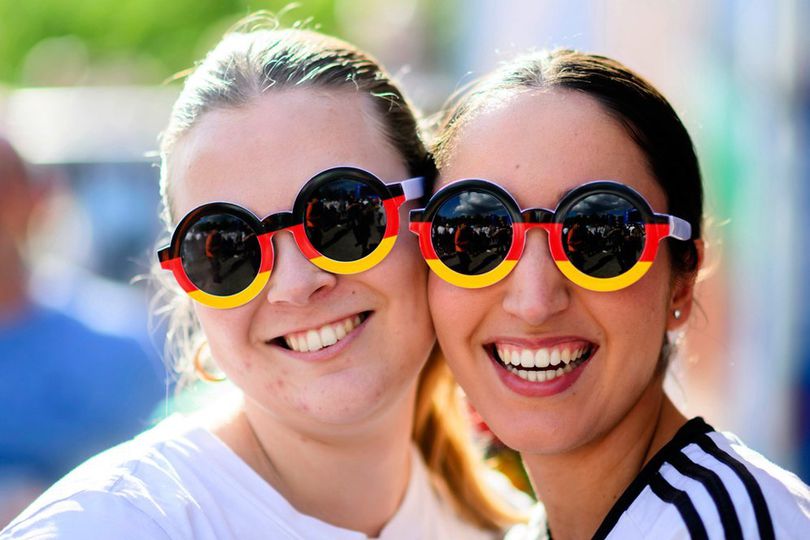Historical Rivalry and Diplomatic Relations

Germany vs denmark – The relationship between Germany and Denmark has been shaped by a complex history of rivalry and cooperation. During the Middle Ages, the two countries were often at odds, competing for control of the Baltic Sea. In the 19th century, Denmark allied with France against Prussia, which led to the Danish-Prussian War of 1864. Prussia’s victory in this war resulted in the loss of Schleswig-Holstein to Denmark, which had been a part of the Danish kingdom for centuries.
In the 20th century, Germany and Denmark fought on opposite sides of both World Wars. After World War II, the two countries became close allies, cooperating on a wide range of issues, including defense, trade, and energy.
Current Diplomatic Ties
Today, Germany and Denmark enjoy close diplomatic ties. The two countries are both members of the European Union and NATO. They also cooperate on a number of bilateral issues, including renewable energy, climate change, and defense.
Economic Comparison and Cooperation

Germany and Denmark are both prosperous countries with advanced economies. Germany is the largest economy in Europe and the fourth largest in the world, while Denmark is a smaller but still highly developed economy. Both countries are members of the European Union (EU), which has had a significant impact on their economic cooperation.
Economic Strengths and Weaknesses
Germany’s economic strengths include a highly skilled workforce, a strong manufacturing sector, and a large domestic market. Denmark’s strengths include a strong social welfare system, a high level of innovation, and a competitive agricultural sector.
Both countries face some economic challenges. Germany’s economy is heavily dependent on exports, which makes it vulnerable to global economic downturns. Denmark’s economy is relatively small, which can make it difficult to compete in global markets.
Trade Relations
Germany and Denmark have a long history of trade relations. Germany is Denmark’s largest trading partner, and Denmark is Germany’s sixth largest trading partner. The two countries trade a wide range of goods and services, including machinery, vehicles, and agricultural products.
Impact of the European Union
The EU has had a significant impact on economic cooperation between Germany and Denmark. The EU’s single market has eliminated trade barriers between member states, making it easier for businesses to operate across borders. The EU has also created a common currency, the euro, which has reduced transaction costs and made it easier for businesses to trade with each other.
Potential for Future Collaboration
There is significant potential for future economic cooperation between Germany and Denmark. The two countries could collaborate on a number of areas, including renewable energy, clean technology, and digital innovation.
Cultural Exchange and Similarities: Germany Vs Denmark
Germany and Denmark share a rich cultural tapestry, exhibiting both similarities and distinctions that have shaped their respective identities. The proximity of these nations has fostered a continuous exchange of ideas, traditions, and artistic expressions, further enriching their cultural landscapes.
Language
While Germany and Denmark possess distinct languages, their linguistic roots are intertwined. Both German and Danish belong to the Germanic language family, sharing a common ancestor. This shared heritage is evident in the similarities between their vocabulary, grammar, and pronunciation. However, over time, each language has evolved its unique characteristics, resulting in differences in syntax, pronunciation, and certain words.
Traditions
German and Danish traditions reflect the deep-rooted customs and practices of their respective societies. Both cultures place great importance on family, community, and social gatherings. Traditional festivals, such as Christmas and Midsummer, are celebrated with enthusiasm and a shared sense of heritage. However, certain traditions vary between the two nations, such as the German Oktoberfest, which is not as widely celebrated in Denmark.
Art, Germany vs denmark
Germany and Denmark have a long and distinguished history in the arts, producing renowned artists, writers, and musicians. In painting, German Expressionism and Danish Golden Age painting are notable movements that have influenced the development of art in both countries. In literature, the works of Goethe, Schiller, and Andersen continue to inspire and resonate with readers worldwide.
Cultural Exchange Programs
Cultural exchange programs play a vital role in fostering understanding and appreciation between Germany and Denmark. These programs provide opportunities for students, artists, and professionals to immerse themselves in the culture of the other nation, promoting cross-cultural dialogue and collaboration. The Erasmus+ program, a European Union initiative, has been instrumental in facilitating such exchanges.
Globalization
Globalization has had a significant impact on cultural interaction between Germany and Denmark. Increased connectivity and the flow of information have led to a greater awareness and appreciation of each other’s cultures. Social media, film, and music have become powerful channels for sharing cultural experiences and breaking down barriers.